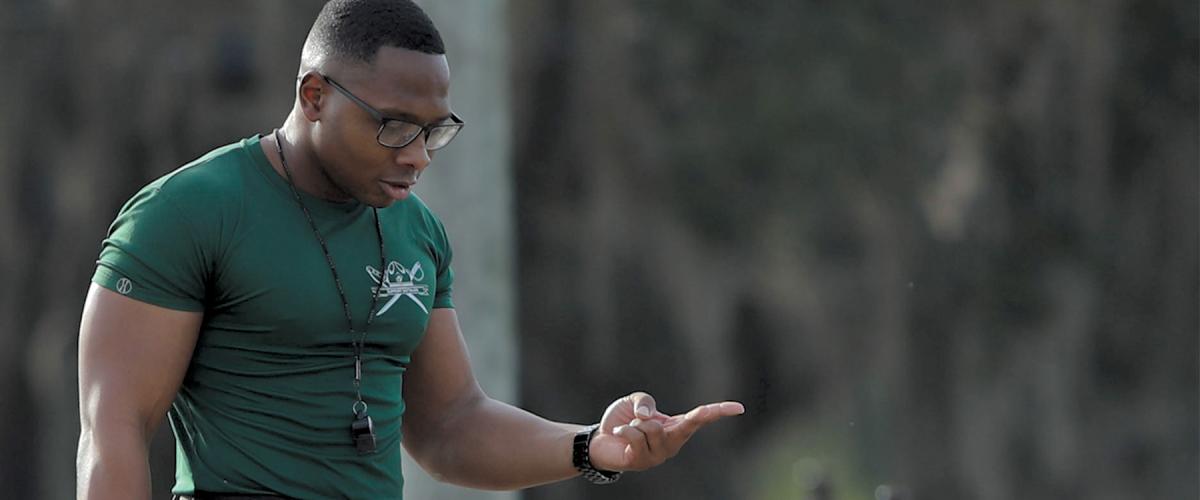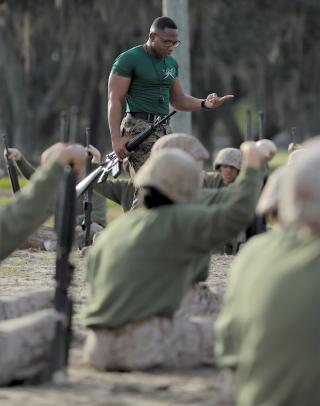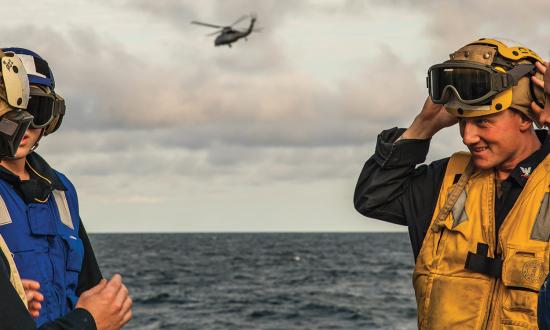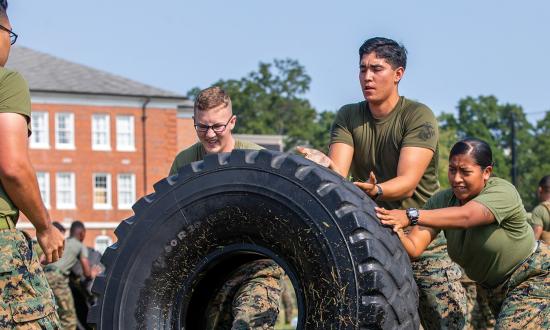Several clichéd images come to mind when the words “Marine Corps leadership” are invoked— drill instructors with campaign hats pulled low, prowling the squad bay like a school of frenzied sharks; a lazy-eyed gunnery sergeant, growling his displeasure at the poor cleanliness of the barracks; a vigorous counseling session at a sergeant major’s desk following nonjudicial punishment proceedings. Rarely does it conjure an image of a Marine actually embodying one of the 14 leadership traits or demonstrating one of the 11 principles of Marine Corps leadership. These traits and principles are considered fundamental to leadership development. Unfortunately, these traits are rarely studied past the noncommissioned officer (NCO) training for corporals and sergeants. Institutionally, Marine leaders often suffer from a “been there, done that, got the t-shirt” mentality around the accomplishment of their daily tasks and duties. Given this troublesome mindset, discussions on humility are essential to developing effective leaders at levels above the NCO ranks.
Humility vs. Unselfishness
For our purposes, let us define humility simply as “not making everything all about you.” A critic might suggest that adding humility to leadership training would be redundant, because unselfishness already is an established leadership trait. Training and Education Command’s definition of unselfishness is “Avoidance of providing for one’s own comfort and personal advancement at the expense of others.” It also provides an example: “An NCO ensures all members of his unit have eaten before he does.”
Unfortunately, unselfishness is relegated to the arena of comfort-based decisions. Humility achieves a different result. Rarely do we see leaders who failed to provide food and equipment to their troops. However, everyone has experienced leaders who were so self-absorbed that their command presence imparted anxiety rather than a sense of cohesiveness and collaboration.
Signs Leaders Lack Humility
Roman statesman Cicero said, “Do not hold the delusion that your advancement is accomplished by crushing others.” Most readers have probably heard the parable of the young lieutenant and the hundred salutes. The story goes like this: A second lieutenant became irate with a lance corporal who failed to demonstrate proper military customs and courtesies with a salute and proper greeting of the day. By way of remedial training, the lieutenant ordered the Marine to salute him 100 times. A captain came upon the scene and promptly reminded the young lieutenant that military customs and courtesy also required each of the lance corporal’s salutes be returned. The captain calmly supervised the wrap-up of this remedial training session as the lieutenant returned every one of the salutes. Unlike the lieutenant, the captain made the issue about someone other than himself.
Perhaps the clearest indicator of a lack of humility is the military’s cultural obsession with reserved parking spaces with billet descriptions painted on them. Outrage over a parking spot is a clear indicator someone has not experienced a truly significant crisis recently. A reminder: The parking spot is not yours. The battalion commander and sergeant major get painted signs as a matter of courtesy. (Although we all know that the sergeant major is one physical fitness test away from a hip replacement, so give the guy a break.)
I once had a company commander who was unaware of his effect on the Marines around him. He was not malicious, but he inserted himself into everything—demanding to know why he could not get the support he required. This made the problem about what he wanted instead of getting the job done. This required following him around, constantly putting out fires and mending fences. The company gunny had to remind his clerks to imagine what they could accomplish if they set aside ego and developed nonadversarial relationships with the other sections so that when support requests were sent, the others actually wanted to do it for the gunny’s company. A dash of humility goes a long way in developing healthy relationships.
The Practice of Humility
In Ben and Rosamund Zander’s book, The Art of Possibility, they discuss “Rule Number 6”: “Don’t take yourself so seriously.” Marines in particular have an issue with this concept; we tend to take ourselves rather seriously. Ben Zander writes, “Rule Number 6 can help us distinguish the part of ourselves that developed in the competitive environment.” In the Marine Corps, everything is a competition. It pays to be a winner, and we hate losing even more than we love winning. These are excellent attitudes when it comes to overcoming obstacles and winning battles, but maybe not when it comes to team building. Ben Zander refers to this as the “calculating self,” noting, “No matter how confident or well-positioned this adult self appears, underneath the surface it is weak and sees itself as marginal, at risk of losing everything.” Ouch! The cost is steep when we strive to protect our pride at all costs.
I used to admonish my Marines that, since they enlisted, their lives were no longer about just them, but about the Marines to their left and right. In The Warrior Ethos, Steven Pressfield writes about why a Greek hoplite would merely be fined for losing his helmet but executed for losing his shield: “Because the helmet and spear are carried for the protection of the individual alone, but the shield protects every man in the line.” Guess what? Other people are more important than you.
Leadership Fundamentals
Pressfield’s novel Gates of Fire is on the Commandant’s Reading List, but its popularity resulted in far too many Spartan helmets and lambda symbols on unit t-shirts. Marine deification of Lacedaemon culture unfortunately eclipsed the great pearl of wisdom in the book:
A king does not abide within his tent while his men bleed and die upon the field. A king does not dine while his men go hungry, nor sleep when they stand at watch upon the wall. A king does not command his men’s loyalty through fear, nor purchase it with gold; he earns their love by the sweat of his own back and the pains he endures for their sake. That which comprises the harshest burden, a king lifts first and sets down last. A king does not require service of those he leads but provides it to them. He serves them, not they him.
To serve others requires a degree of humility that is often difficult to embody and execute. It is not enough to give platitudes central to leadership fundamentals. “Mission accomplishment and troop welfare” and “Mission first, Marines always” are just noisy clichés—unless we step out of ourselves for an objective moment and evaluate our impact on those around us. Humility is the polish that will help a leader shine.








